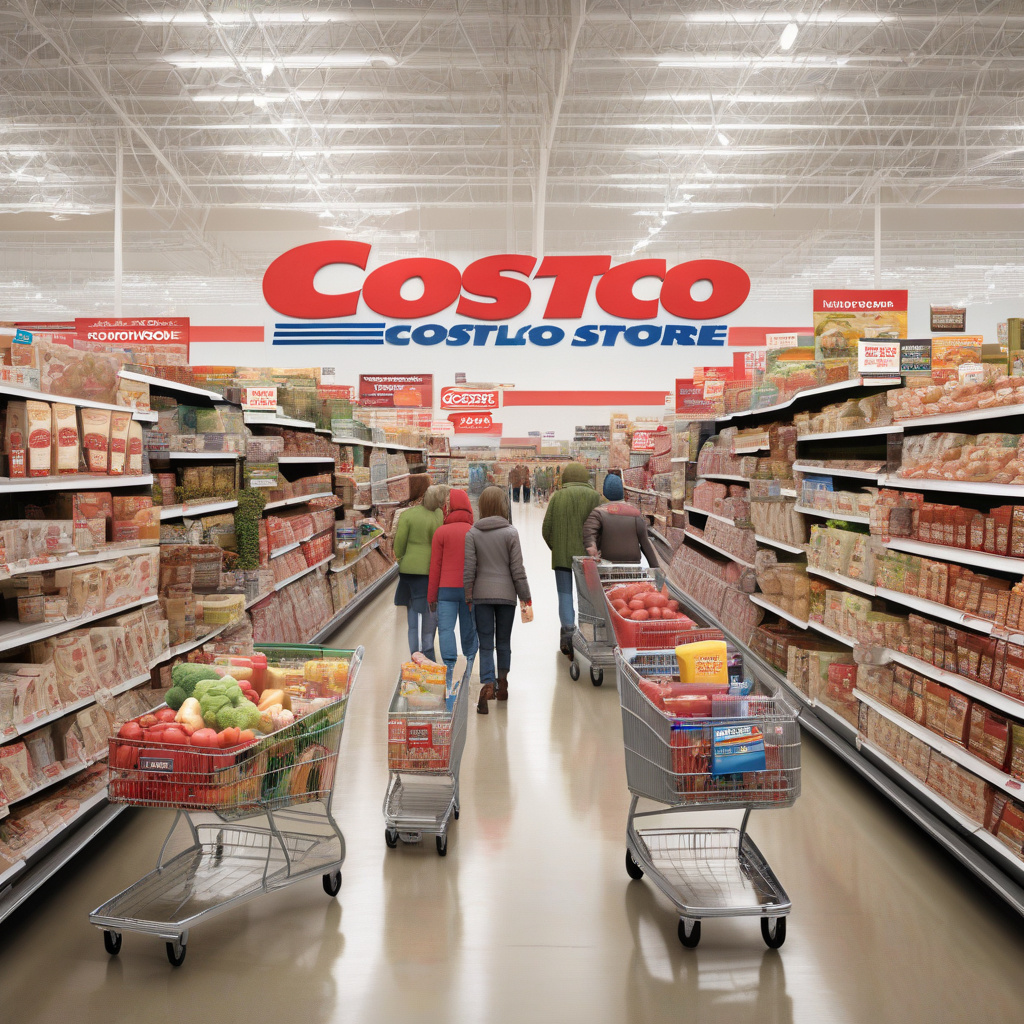Costco Backs Up Its Status as a Retail Winner During a Cloudy Time for the Economy
In an era marked by economic uncertainty, Costco’s recent performance has emerged as a beacon of resilience in the retail sector. The membership-based retailer reported March sales that exceeded expectations, solidifying its status as a leader in the competitive landscape of retail. While many businesses struggle amidst inflationary pressures and shifting consumer behaviors, Costco’s robust sales figures offer a glimpse into its successful strategies and the factors contributing to its ongoing success.
Costco’s March sales figures revealed a notable increase, providing a stark contrast to the challenges faced by many retailers. Analysts had anticipated a more subdued performance, yet the retailer’s ability to exceed these forecasts showcases its unique business model and effective operational strategies. This growth can be attributed to several key factors, including its commitment to low prices, a strong membership base, and an adaptive approach to inventory management.
One of the primary drivers behind Costco’s success is its focus on value. The retailer is renowned for its membership model, which not only generates a steady stream of revenue but also fosters a sense of loyalty among its customers. By charging an annual fee for membership, Costco can offer competitive prices on a wide range of products, from groceries to electronics. During economically challenging times, consumers are increasingly drawn to retailers that deliver quality at a lower price, making Costco’s value proposition particularly appealing.
Moreover, the warehouse shopping experience that Costco provides sets it apart from traditional retailers. Shoppers at Costco can purchase products in bulk, which not only reduces the per-unit cost but also allows consumers to stock up on essentials. This buying behavior becomes even more pronounced during times of economic uncertainty, as households seek to maximize their spending power. By strategically positioning itself as a cost-effective option, Costco has been able to attract both new members and maintain the loyalty of existing ones.
In addition to its pricing strategy, Costco’s ability to adapt its inventory management in response to market demands has proven beneficial. The ongoing supply chain issues that have troubled many retailers did not significantly hinder Costco’s operations. The retailer’s well-established relationships with suppliers and its efficient logistics system have enabled it to remain agile in the face of disruptions. By ensuring that shelves remain stocked with popular items and managing inventory levels effectively, Costco has been able to meet customer demand even during turbulent times.
Another crucial aspect of Costco’s success is its emphasis on quality. The retailer has built a reputation for offering high-quality private-label products under its Kirkland Signature brand. This commitment to quality not only differentiates Costco from its competitors but also encourages repeat purchases from satisfied customers. When consumers trust the quality of the products they are buying, they are more likely to return to the store, further reinforcing Costco’s robust sales figures.
Costco’s unique approach to merchandise selection also plays a significant role in its sales performance. The retailer typically offers a limited selection of items, focusing instead on high-demand products that appeal to a broad customer base. This strategy allows Costco to streamline operations and reduce inventory costs, ultimately contributing to its profitability. In March, the retailer’s ability to provide essential items, from groceries to household goods, resonated with consumers who are increasingly prioritizing convenience and value.
Furthermore, Costco’s online shopping platform has seen substantial growth, complementing its brick-and-mortar operations. The pandemic accelerated the shift towards e-commerce, and Costco has effectively capitalized on this trend. With a user-friendly website and a robust delivery system, the retailer has expanded its reach beyond physical locations, catering to a wider audience. This diversification not only helps to stabilize sales during economic downturns but also positions Costco for continued growth in the digital marketplace.
While many retailers grapple with the challenges of inflation and changing consumer behavior, Costco’s recent sales figures underscore its ability to navigate the complexities of the current economic climate. Its combination of low prices, high-quality products, strategic inventory management, and an expanding online presence has solidified Costco’s position as a retail winner. As the economy continues to evolve, businesses can learn valuable lessons from Costco’s approach to maintaining customer loyalty and driving sales growth.
In conclusion, Costco’s impressive sales performance in March serves as a testament to its successful business model and strategic execution. With a strong focus on value, quality, and adaptability, the retailer has managed to thrive even when many others falter. As consumers continue to seek out cost-effective solutions during uncertain times, Costco is well-positioned to maintain its status as a leader in the retail sector.
retail, Costco, ecommerce, consumerbehavior, economicuncertainty
